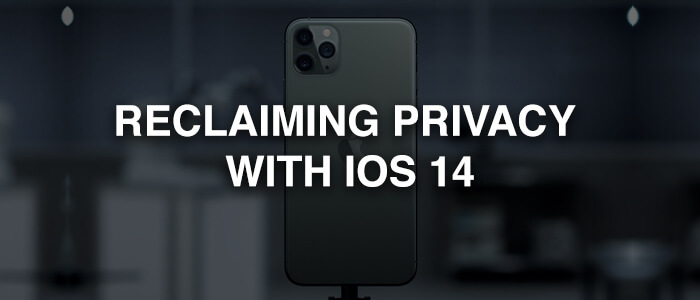
From Facebook to TikTok, modern apps have normalized mass collection of user data with complete disregard to the right of individual privacy. Apple itself is one of the most crucial players behind the advent of this age of surveillance capitalism, where data has become the new currency, every bit as valuable to advertisers as actual money.
But things might be taking a refreshing turn as Apple takes its newfound approach to handling user privacy one step ahead with iOS 14. The new Apple iOS 14 will introduce a privacy notification system that will alert users whenever apps are accessing your data or phone’s hardware in potentially unwanted ways and also gives users far greater control when it comes to permissions and denying access to certain functions and data in your phone.
Key iOS 14 Privacy Features and their Importance
The following are some of the key privacy features in iOS 14 which are described in relation to their importance as far as their effectiveness in preventing potential violation of user privacy is concerned:
1. Mic and camera indication
One of the best things that iOS 14 will introduce is an “indicator light” that will glow whenever any app is accessing your phone or camera. A green dot of light will appear over the Wi-Fi and network signal symbols to indicate that your camera is currently being accessed by an app. When an app is accessing your mic, an amber light dot will appear instead.
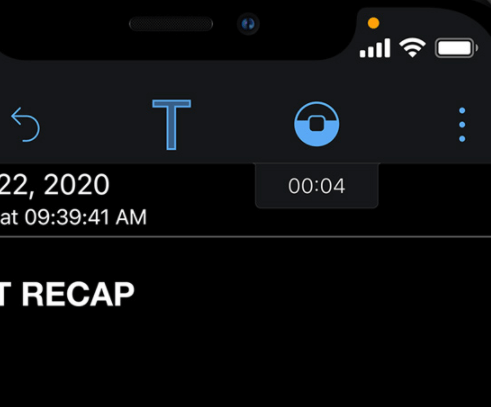
These indications are simple yet extremely important and help users always be aware of whether their phones or cameras are currently in access.
In a phone, nothing is more private to a user than the mic and camera. After all, these are the sensors that contain our voice and photos. Some apps can’t function without having access to your mic and camera, such as Zoom. But often you’ll find apps that have no business accessing your mic or camera asking you permission to do so.
That is when it gets pretty shady and a potential for abuse of your information becomes apparent. Thankfully, with this new simple indication feature in iOS 14, users will instantly know if any app is accessing their mic or camera.
2. Photo permissions
It’s not new for either iOS or Android systems to ask the user for permission if any app wants to access their photos. However, users could either give complete access to their photos or deny it altogether. This left users with no choice but to give up their entire photo library even if they just wanted to restrict access to a particular folder.
The shotgun approach to photo permissions prevent precise control of access. This is exactly what iOS 14’s photo permissions system will change. Now, when an app asks for access permission for photos, the OS will give users the option to allow access to all photos or selected individual photos/folders.
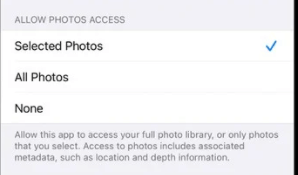
This adds a much needed precision to access control, so iPhone users no longer have to worry about handing over their entire photo albums when it’s not even necessary to do that.
3. Clipboard notifications
The invisible clipboard that all copied text is saved to might not seem like anything users should be worried about. But if you think about it, clipboards regularly store some of our most private details including PIN codes and passwords.
In iOS 14, pasting any message in an app will immediately trigger a notification that will reveal which app(s) accessed your clipboard and where the pasted message was copied from. This is an extremely important notification because apps have been surreptitiously collecting clipboard information without user permission.
In older versions of the iOS, apps enjoyed unrestricted access to the clipboard. Indeed, researchers found that many apps read users’ clipboard data without permission.
It is important, however, to remember that just because an app is reading your clipboard doesn’t necessarily mean that they are collecting this information or saving it in their own servers for monetization. Indeed, clipboard access serves the perfectly innocent function of allowing users to copy and paste text between different apps.
The only cases where an app reading clipboard data would be worrisome is if that app doesn’t even have any text field to enter anything into. There is absolutely no reason for such an app to be accessing clipboards and these might be actually be involved in scraping and transmitting clipboard information back to their servers.
But the great thing is that users will now know if their clipboards are being accessed which has become extremely important to know. In fact, simply exposing apps for clipboard information collection will automatically force apps to avoid the practice of accessing clipboards needlessly, which will lead to tighter privacy as a whole for all users.
This is why the introduction of clipboard notification in iOS 14 is such a major advancement as far as privacy controls go.
4. Controlling location precision
Until iOS 13, you could either permit an app to use your precise location or refuse to give that access. iOS 14 will go beyond this binary yes or no location access design and give users the option to allow only approximate location to apps rather than your precise location.
The ability to control the precision of location data is extremely useful. Many services rely on location data for different purposes and the precision of location data should ideally be set depending on the purpose for best balance between privacy and quality of service.
For instance, if you’re using Uber, you definitely need to let the app have access to your precise location if you don’t want your ride to end up waiting for you three blocks away. But if an app can function effectively with approximate location data, such as local news (it only needs to know your city to deliver local news stories to you), then you should probably confine access to approximate location only.
5. App Store Privacy Details
Another excellent addition in iOS 14 is the new App Store which will explicitly contain all information about permissions and access that the app will require from you. This will include the data used to track the user (such as location) and other data linked to you (such as browsing history).
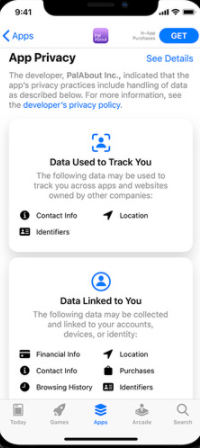
With these privacy details clearly mentioned in the App Store for every app, users will be able to make much better informed decisions when downloading any new app. The full disclosure will also discourage developers to integrate any sketchy data collection mechanisms in the apps.
6. Safari privacy report
A lot of tracking and data collection that is outrageously from the privacy standpoint happen within browsers. In this regard, it is great to see Apple take the initiative of offer a privacy report in the latest Safari versions.
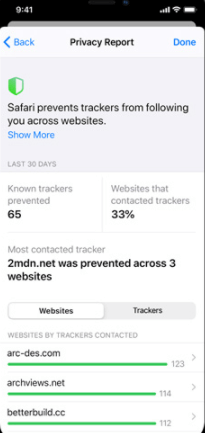
This report can be accessed within the Safari browser and it will disclose information such as trackers blocked by the browser and which websites have the most trackers etc.
7. Advertising Identifier permissions
The most surprising new privacy feature in iOS 14 is that users can actually deny apps from tracking the identifier for Advertisers (IDFA), which is used for displaying personalized ads. Each Apple device has a unique IDFA which has hitherto been open to access for any app that wishes to track it for the purposes of personalized ads.
![]()
With users now having the ability to turn off this tracking, Apple has actually started what could be the end of personalized ads through device ID tracking.
Indeed, even Facebook has been so shocked by this decision that the company is considering not offering their Audience Network for iOS 14, because the ads it serves rely heavily on IDFA. And you know Apple is doing something right if their policy changes have angered Facebook.
Conclusion
It is incredibly refreshing to see one of the tech giants taking that much needed initiative towards giving control back to the user and tightening up the way privacy is handled by apps.
With features such as microphone access alerts, clipboard notifications, and ability to turnoff advertiser tracking, iOS 14 is well on its way on setting a precedent for future operating systems by proving that we don’t need to sacrifice our privacy to enjoy the benefits o the tech-powered world of tomorrow.
